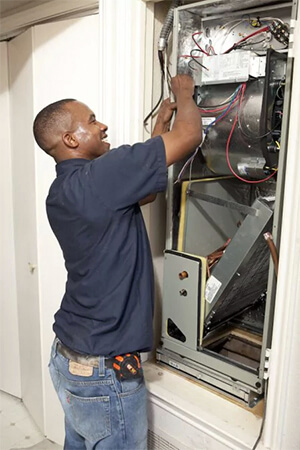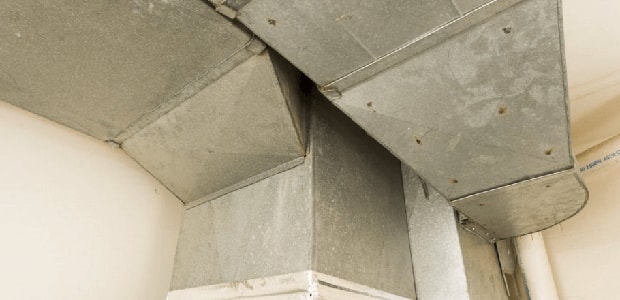HVAC Repair: Why You Should Call a Pro

Keep your HVAC unit clear of leaves and other debris. (Photo by Katelin Kinney)
Thanks to social sharing websites like Pinterest and YouTube, we live in the age of DIY.
While DIY can be a great concept for trying your hand at building a coffee table or turning an ordinary jar into a colorful centerpiece, certain projects or repairs really require the technical know-how of a trained professional. When something goes wrong in the home, it’s tempting to try fixing it yourself. Unfortunately, this approach often leads to costly damages and dangerous situations when dealing with HVAC units. Learn why it’s best to hire an HVAC pro.
Find Top-Rated HVAC Repair Pros
Search NowHVAC Repairs Can Be Dangerous
What you don’t know will hurt you. HVAC units are highly technical and use a large amount of voltage electricity. It’s best to stay away from these levels of electricity if you don’t know what you’re doing.
Heating and cooling appliances also use chemicals and refrigerants most of us are unfamiliar with. Handling these chemicals can be deadly if the proper precautions aren’t followed. Proper training and safety gear is essential to make sure no one is injured by or exposed to deadly chemicals used in these systems. Handling these chemicals also requires certification.
HVAC Work Requires Specialized Tools
You wouldn’t try to build a table without a hammer and a saw. The same is true for HVAC repairs. Specialized, professional tools are used to correctly identify and repair problems. Without these tools, you run the risk of creating even more damage to the unit.
Small Issues Can Lead To Bigger HVAC Problems
What might seem like a small problem to you could really be a symptom of a much larger issue. Even more challenging is diagnosing the real problem with the symptoms masked. If there’s an issue with your unit, have a technician take a look to ensure that you aren’t just patching an issue that will eventually become a costly, dangerous and inconvenient problem down the road.
Small problems can quickly become big problems. The most dangerous decision is trying to fix something you don’t know how to fix. One wrong decision can lead you to more damage than there was to start. The more you attempt to repair, the higher the risk of damaging a unit beyond repair.
HVAC Replacement is Tricky
Without the knowledge of a trained technician, it’s difficult to know what your home really needs in terms of size and capacity of an HVAC unit. Making these decisions alone leads to overspending on a unit ill-fitted for your home.
When considering a new unit, do your research, but consult a certified technician to help you make the right choice for your space. In the end, a brief consultation at minimum helps ensure you’re making the best choice for your needs in terms of efficiency and comfort.
DIY Small HVAC Maintenance Tasks
The good news for the handy type is that there are still plenty of things you can do to maintain and service your unit. General maintenance and cleaning are essential for an efficient and healthy system. The next time you want to do a little work on your HVAC unit, take on one of these tasks.
Cleaning
Clean and check your filters. Change them when necessary to keep your unit running at tiptop shape. Complete this task frequently to make sure the air in your home is clean and your unit isn’t working any harder than it needs to. Clear out leaves and branches, and maintain clear space around the unit.
Battery Checks
If you don’t already have a carbon monoxide detector, go get one. If you have one, go check the batteries. A detector with bad batteries is just as useless as not having one at all. Check that your detector is in good working order monthly to make sure your home and family are safe from poisonous gas.


 10 Things to Ask
10 Things to Ask Plumbing
Plumbing How Do I Know If I Have
How Do I Know If I Have 7 Eco-Friendly Home
7 Eco-Friendly Home